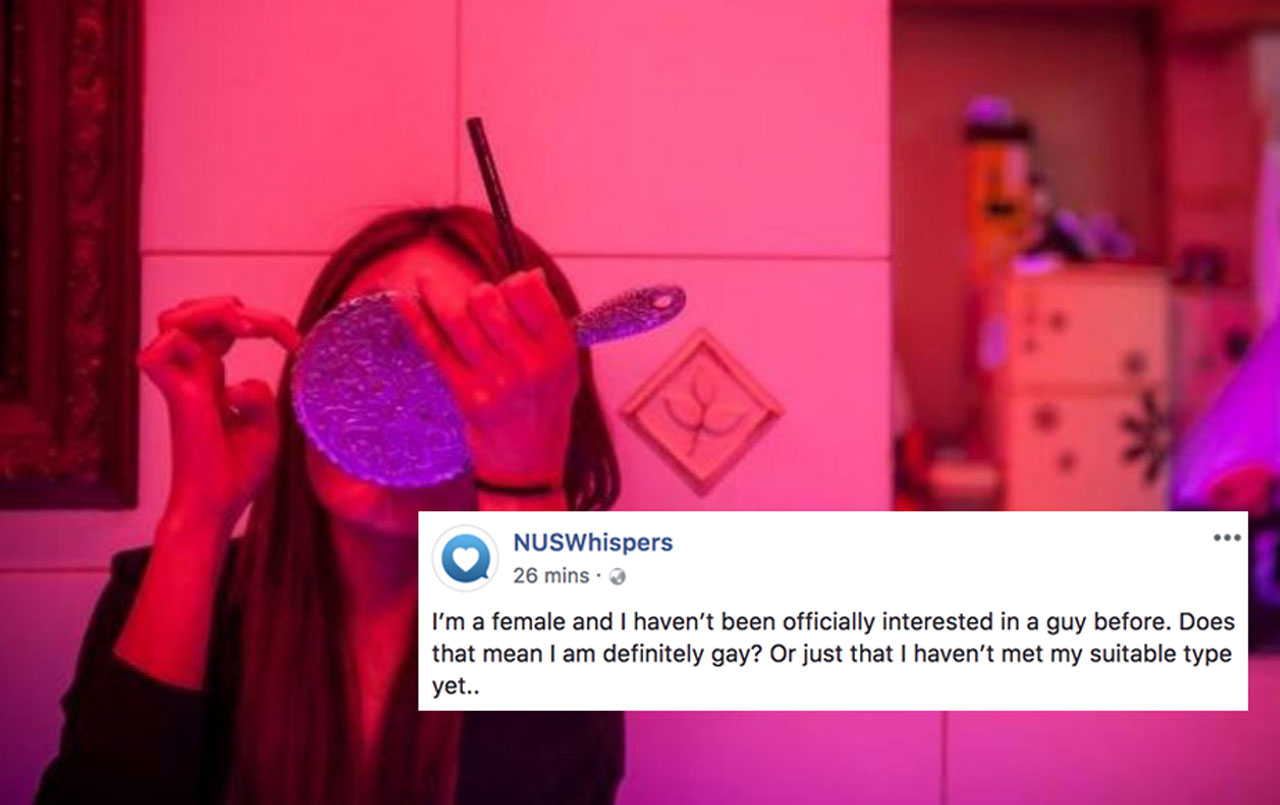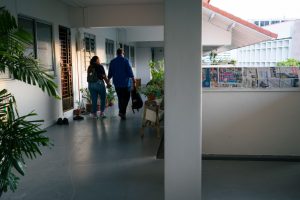Everyday, the page receives between 10 to 30 anonymous submissions from students looking to shed their inhibitions and air their grievances in exchange for reasonably bad advice from online trolls.
Confessions range from the scandalous, “What do you guys think about a year 1(M) dating a year 4(F)?” to the academic, “Will I still be able to achieve at least a B+ if i scored badly for my midterms?” to the irrelevant, “If a man gets 1 boob through surgery … Is it still offensive to be half naked?”
While it is tempting to dismiss the page as frivolous, writing off these confessions as trivial problems of 20-something-probably-privileged university students, closer inspection reveals that NUSWhispers does in fact accurately and effectively encapsulate some very quintessential Singaporean issues.
It seems that regardless of race, language or religion, Singaporeans really only have 5 problems.
With close to a third of the confessions posted to the page daily pertain to matters of the heart, NUSWhispers should really be called NUSHelpLoveIsSoHard.


Remember Ashry Yow Ong Min? Or this couple in Yishun who were caught on tape throwing their shoes at each other? Or this guy who threw a hot iron at his girlfriend after arguing with her?
Even our nation’s pandas (though they may be from China) Kai Kai and Jia Jia will not be allowed to mate this year.
Given that Singaporeans just can’t seem to get lucky in love, it’s little wonder why our fertility rate is at an all-time low while places like Tinder, Coffee Meets Bagel and Grindr are thriving.
NUSWhispers itself should just start matching the individuals who flock to the page to air their erotically charged confessions.
University is tough. Just 5 minutes on NUSWhispers and you’ll see plenty of proof that it is.

For anyone who’s ever been told that their uni days are the best years of their life before work starts, this is proof that it’s all a lie. What university really is, is a preview of the mundane realities of having a career.
Not to play Dr. Doom, but when it comes to one’s studies, all those regrets that you have, the uncertainties, the pressure, the insecurities and the failures, that only intensifies upon graduating and entering the workforce.
Things don’t get better. They get worse. And don’t forget about those bills you now have to pay.
Once or twice a week, a confession will pop up on the page detailing a student’s personal struggles with money. Tales of them scrimping to make ends meet, all while battling an overwhelming sense of inferiority compared to their peers, can sometimes make for a difficult pill to swallow.

Such stories never fail to garner large amounts of sympathy and sad reacts. After all, we can each relate to the feeling helplessness with regards to our own social standings.
Socio-economic inequality is nothing new in Singapore, where it can often be more about who you know than what you know. As such, moving up the socioeconomic ladder is a nigh impossible task for many.
Sure, there’s no denying the fact that most Singaporeans, whether NUS-educated or not, lead reasonably comfortable lifestyles and will probably never experience anything remotely close to poverty. But if you’re born a middle-class Singaporean, chances are you will die a middle-class Singaporean.
In the face of this inevitability, what can you do? Just post on NUSWhispers or Reddit or EDMW, I guess.
In April, it was announced that NUS had plans to roll out purely cashless transactions for all retail and dining outlets by August.
Eagle-eyed students were quick to call out the school’s BS, for instance: “The incentive of cashless payment in NUS canteens should be called disincentive for using cash payment. The price of our food is increased by 10% so we get to receive a 10% discount for using cashless payments.”

Such resistance hasn’t occurred in a vacuum. Rather, it is a microcosm of a nationwide struggle to go cashless.
In a forum letter to the Straits Times, one very astute Sng Woei Shyong pointed out that the cost of accepting cashless payments (for vendors) is about 3 times higher than accepting cash. Moreover, phasing out the use of cash for topping up one’s ez-link cards puts commuters like the elderly at a disadvantage.
In Singapore’s dogged pursuit of transforming itself into a Smart Nation, we’ve begun alienating those unable to adjust to online/electronic systems of payment. It is thus little wonder why many Singaporeans haven’t been too quick to jump on the cashless bandwagon.
The voice of the masses is clear. Going 100% cashless is the mother of all bad decisions. If it’s on NUSWhispers, it has to be true of all of Singapore.
“Hi you. Yes you, the one reading this. You know who you are, we bumped into each other at the bus stop just now.”
This is how a disturbing number of confessions on NUSWhispers start, and they explain why the page was birthed in the first place, and why it continues to do so well 3 years on.
Not only are we afraid of publicly speaking our minds, no one wishes to be made accountable for the things that are said and the consequences that might follow.


Whatever we need to say, we say it. Just not face to face. Rather, we prefer to take everything online, where we can always retreat behind the safety of our screens should anything go South.
Contrary to what we might think, the culture of fear that surrounds speaking up in Singapore isn’t just endemic to those working in the public sector.
The real question then is, when are we going to get our very own SGWhispers?






